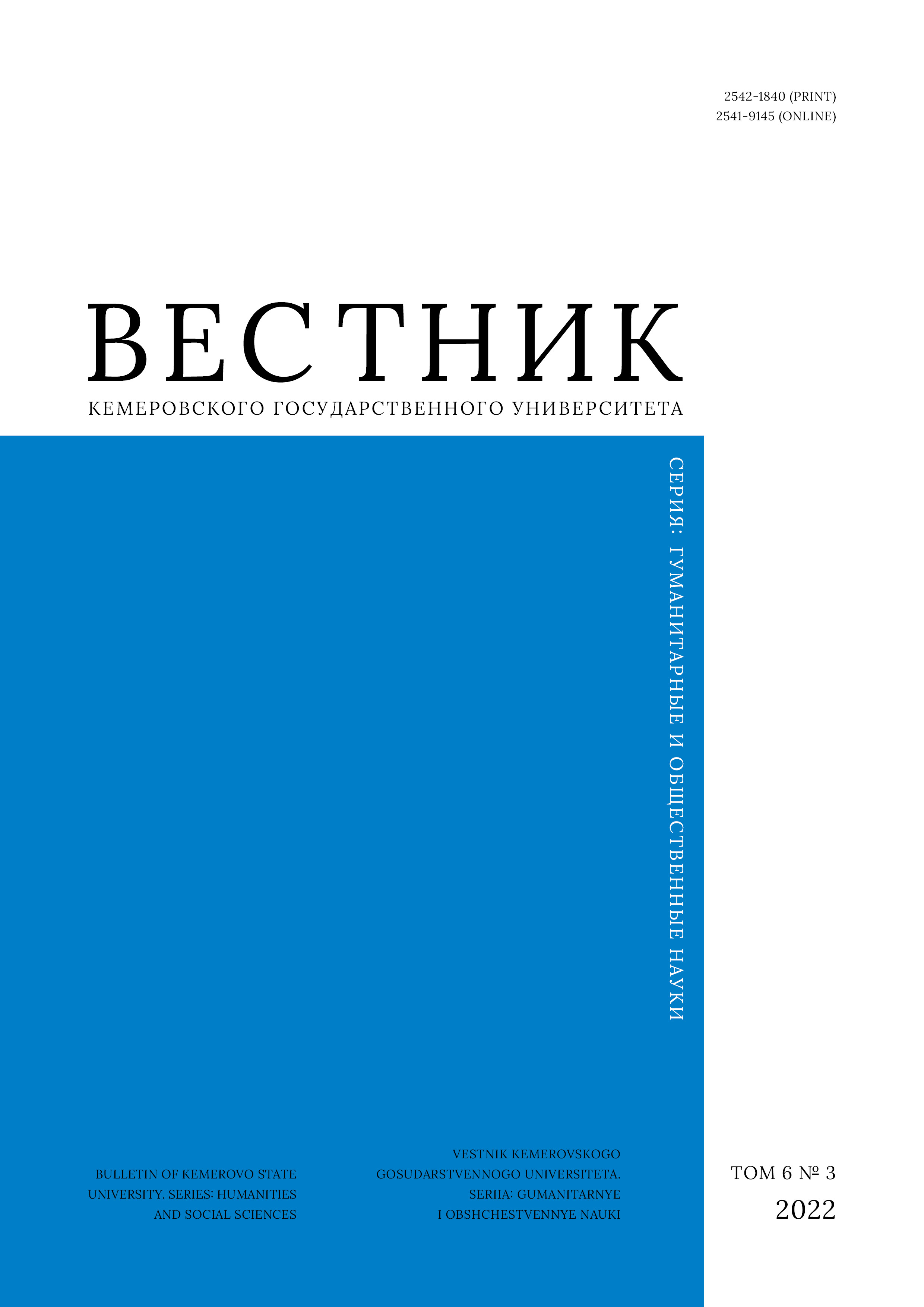Russian Federation
Kemerovo, Russian Federation
Kemerovo, Russian Federation
Kemerovo, Russian Federation
Modern university teaching staff require digital competencies, but their development in the digitalization epoch still remains understudied. The organization and content of digital training in the system of continuing pedagogical education also need a unified approach. The article focuses on digital skill development in faculty members as part of life-long learning. The authors defined the concept of digital competency and created a professional retraining program of Digital Technologies in Teaching, which they put to an evaluation test. The course lasted 72 hours and consisted of several stages and a final assessment. The research objective was to identify the level of digital competencies in the course graduates. The study involved a review of relevant scientific publications, an analysis of normative documents, and various methods of observation. The program provided a well-structured learning process and enabled the participants to create digital syllabuses of their own. It can be recommended for teaching staff of all education levels who would like to increase their digital competency.
education digital transformation, teacher digital competencies, professional education, electronic training course, additional professional training program, LMS Moodle platform
1. Larionov V. G., Sheremetyeva E. N., Gorshkova L. A. Digital transformation of higher education: technologies and digital competencies. Vestnik of Astrakhan State Technical Universitety. Series: Economics, 2021, (2): 61-69. (In Russ.) https://doi.org/10.24143/2073-5537-2021-2-61-69
2. Sukhodaeva T. S., Akberov K. Ch. Digital transformation of modern higher education. Informatsiia i obrazovanie: granitsy kommunikatsii, 2019, (11): 15-16. (In Russ.)
3. Popova O. I. Transformation of higher education in the conditions of the digital economy. Management issues, 2018, (5): 158-160. (In Russ.)
4. Vayndorf-Sysoeva M. E., Subocheva M. L. 'Digital education" as a system-forming category: approaches to definition. Vestnik Moskovskogo gosudarstvennogo oblastnogo universiteta. Seriya: Pedagogika, 2018, (3): 25-36. (In Russ.) https://doi.org/10.18384/2310-7219-2018-3-25-36
5. Higgins S., Xiao Z., Katsipataki M. The impact of digital technology on learning: a summary for the education endowment foundation. Durham: Durham University, 2012, 52.
6. Gallardo-Echenique E. E., Molías L. M., Bullen M. Students in higher education: social and academic uses of digital technology. RUSC. Universities and Knowledge Society Journal, 2015, 12(1): 25-37. http://dx.doi.org/10.7238/rusc.v12i1.2078
7. Alkova L. A. Criteria for the formation of the ICT competence of the individual through T-technology. Mir nauki, kul'tury, obrazovaniya, 2017, (1): 105-106. (In Russ.)
8. Achkasova O. G. Formation and development of digital competencies of specialists in the framework of the presidential program of preparation management personnel of Kuzbass. Professional Education in Russian and Abroad, 2020, (2): 99-106. (In Russ.)
9. Bugrova O. V. To the question of the definition of "information competence of the teacher". Vestnik Orenburgskogo gosudarstvennogo universiteta, 2018, (1): 6-11. (In Russ.)
10. Vladyko A. V. Teacher's competence for effective work in a digital educational environment. Strategies for the development of social communities, institutions, and territories: Proc. VI Intern. Sci.-Prac. Conf., Ekaterinburg, 27-28 Apr 2020. Ekaterinburg: UrFU, 2020, 263-266. (In Russ.)
11. Kubrushko P. F., Nazarova L. I., Siman A. S. Teacher training for innovative pedagogical activity under digitization of agrarian education. Vestnik of Moscow Goryachkin Agroengineering University, 2019, (5): 40-45. (In Russ.) https://doi.org/10.34677/1728-7936-2019-5-40-45
12. Lomasko P. S., Simonova A. L. Conceptual bases of professional ICT competence development of pedagogical staff in smart educational environment. Vestnik Tomskogo gosudarstvennogo pedagogicheskogo universiteta, 2015, (7): 78-84. (In Russ.)
13. Petrova V. S., Shcherbik E. E. Measurement of the level of development of digital competencies. Moscow Economic Journal, 2018, (5-3): 237-244. (In Russ.) https://doi.org/10.24411/2413-046X-2018-15114
14. Yachina N. P., Fernandez O. G. G. Developing the digital competencies of future teachers in the university's educational environment. Proceedings of Voronezh State University. Series: Problems of higher education, 2018, (1): 134-138. (In Russ.)
15. Redecker C. European framework for the digital competence of educators: DigCompEdu. Luxembourg: Publications Office of the European Union, 2017, 95. https://doi.org/doihttps://doi.org/10.2760/159770
16. .Competence model of the digital transformation team in the public administration system, eds. Shklyaruk M. S., Garkusha N. S. Moscow: RANEPA, 2020, 84. (In Russ.)
17. Bonk C. J., Graham C. R., Cross J., Moore M. G. The handbook of blended learning: global perspectives, local designs. San Francisco, CA: John Wiley & Sons; Pfeiffer, 2006, 624. https://doi.org/10.1186/s41239-017-0087-5
18. Dziuban C. D., Graham C. R., Moskal P. D., Norberg A., Sicilia N. Blended learning: the new normal and emerging technologies. International Journal of Educational Technology in Higher Education, 2018, 15(3). https://doi.org/10.1186/s41239-017-0087-5
19. Rice W. Moodle e-learning course development: a complete guide to successful learning using Moodle. 3rd ed. Birmingham: Packt, 2015, 404.
20. Badia A., Garcia C., Meneses J. Approaches to teaching online: exploring factors influencing teachers in a fully online university. British Journal of Educational Technology, 2017, 48(6): 1193-1207. https://doi.org/10.1111/bjet.12475
21. Zeer E. Ph., Lomovtceva N. V., Tretyakova V. S. University teachers' readiness for online education: digital competence, research experience. Pedagogical Education in Russia, 2020, (3): 26-39. (In Russ.) https://doi.org/10.26170/po20-03-03
22. Gorbunova L. N., Lavrentieva I. V., Tsveliukh I. P. The model of professional development of teachers with accompanying training in information and communication technologies. The Bulletin of Moscow State University of Culture and Arts, 2004, (6): 117-121. (In Russ.)
23. Temerbekova A. A., Meshcheriakova K. S. Modeling of students' learning activities in the conditions of distance learning via Moodle. Mathematics of the Altai Region: Proc. All-Russian Conf. in Mathematics with Intern. Participation, Barnaul, 1-5 Jul 2020. Barnaul: ASU, 2020, 317-321. (In Russ.)
24. Pyanykh E. G. Organizational and pedagogical conditions of the informational competence formation among managers of education. Izvestiya Rossijskogo gosudarstvennogo pedagogicheskogo universiteta im. A. I. Gertsena, 2007, 11(32): 375-379. (In Russ.)


















